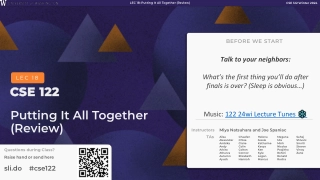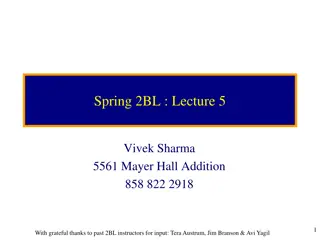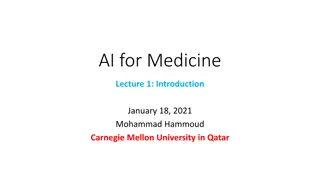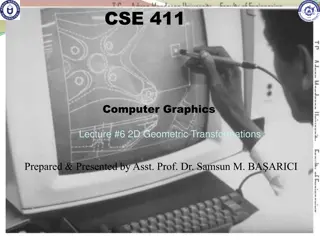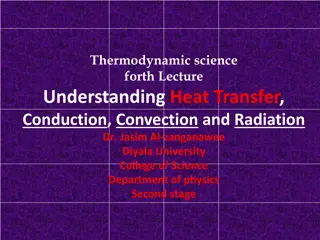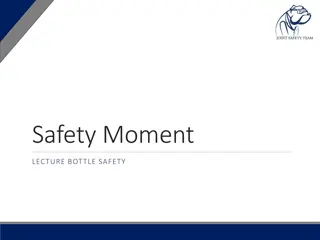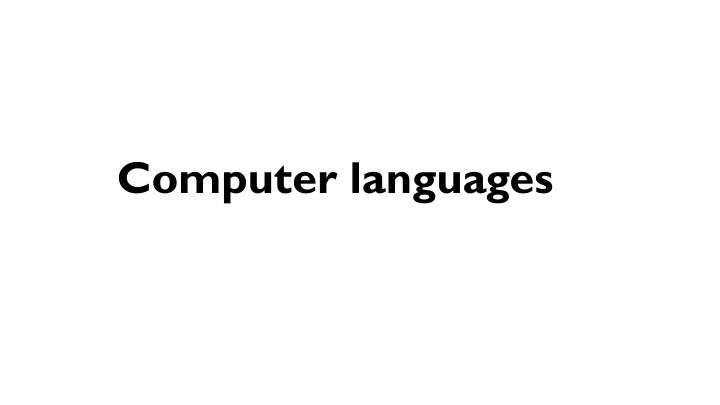
Computer Languages and Operating Systems
Explore the world of computer languages, operating systems, language translators, and the evolution of the C language. Learn about different programming languages, development environments, and the phases C programs go through for execution.
Download Presentation

Please find below an Image/Link to download the presentation.
The content on the website is provided AS IS for your information and personal use only. It may not be sold, licensed, or shared on other websites without obtaining consent from the author. If you encounter any issues during the download, it is possible that the publisher has removed the file from their server.
You are allowed to download the files provided on this website for personal or commercial use, subject to the condition that they are used lawfully. All files are the property of their respective owners.
The content on the website is provided AS IS for your information and personal use only. It may not be sold, licensed, or shared on other websites without obtaining consent from the author.
E N D
Presentation Transcript
Operating System OS is an integrated collection of programs which make the computer operational and help in executing user programs. It acts as an interface between the man and machine. It manages the system resources like memory, processors, input-output devices and files. Windows, Linux, DOS 2
Computer Languages Machine Language- The only programming language available in earlier days Consists of only 0 s and 1 s; e.g.:- 10101011 Symbolic language or Assembly language- symbols or mnemonics are used to represent instructions hardware specific e.g. ADD X,Y; Add the contents of y to x High-level languages- English like language using which the programmer can write programs to solve a problem. more concerned with the problem specification not oriented towards the details of computer e.g.: C, C++, C#, Fortran, BASIC, Pascal etc. 3
Language Translator Compiler : Program that translates entire high level language program into machine language at a time. Interpreter : Program which translates one statement of a high level language program into machine language at a time and executes it. e.g.:- Basic Interpreters, Java Interpreters. Assembler : Program which translates an assembly language program into machine language. e.g.:- TASM(Turbo ASseMbler), MASM(Macro ASseMbler). e.g.:- C, C++ compilers. 4
History of C The C language was evolved by Dennis Ritchie at Bell Laboratories and was originally implemented on a DEC PDP(Digital Equipment Corporation-Programmed Data Processor)-11 computer in 1972. C initially became widely known as the development language of the UNIX operating system. Today, virtually all new major operating systems are written in C and/or C++. C is available for most computers. C is mostly hardware independent. 5
Typical C program development environment C programs typically go through six phases to be executed. These are: edit, preprocess, compile, link, load and execute Phase 1 : creating a program Phases 2 and 3: Preprocessing and Compiling a C Program Phase 4: Linking Phase 5: Loading Phase 6: Execution 7

